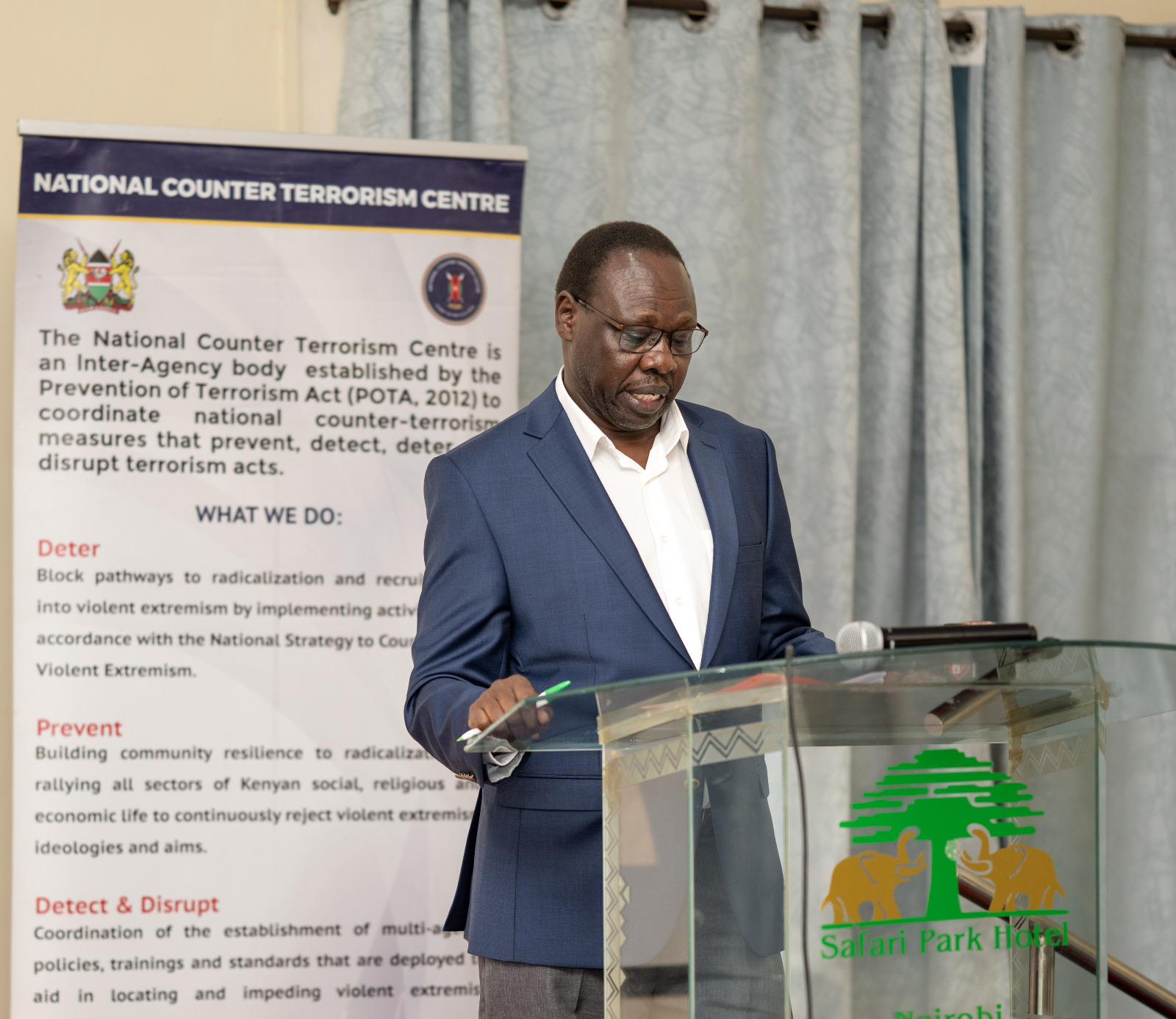
The National Counter
Terrorism Centre got a new director in changes announced.
This follows the expiry of
the term of Dr Rasalind Nyawira who has been the Director at NCTC.
A senior counter-terrorism
at the National Intelligence Service Kibiego Kigen was named as the new changes
made in September 2024.
Kigen is a counter-terrorism expert and many hope he will continue to champion the agenda of the
NCTC.
Nyawira who was a former
head of the Joint Counter-Terrorism Analysis Centre, Kenya had
taken over in December 2020 from Dr Martin Kimani who was then named the permanent
representative of Kenya’s mission to the United Nations (UN).
NCTC is marking 20 years
since its inception and has lined up several activities to celebrate the
two decades of existence.
NCTC is a national
multi-agency body mandated by law to coordinate CT efforts in all of Government
and lead de-radicalisation efforts.
The NCTC is also the
coordination centre for all bilateral and multilateral efforts aimed at
countering and preventing violent extremism.
NCTC was established by the
Prevention of Terrorism Act to coordinate national counter-terrorism measures
that prevent, detect, deter and disrupt terrorist acts.
The among others blocks
pathways to radicalization and recruitment into violent extremism by
implementing activities in accordance with the National Strategy to Countering
Violent Extremism and County Action Plans, training and other operations to
prevent Kenyans from becoming terrorists.
NCTC coordinates the
multi-agency policies, training and standards that are deployed to contain
terrorism.
Further, the agency
undertakes the review of targets vulnerable to terrorist attacks to upgrade
their security.
It also undertakes outreach
and training in incident response to mitigate the damage of a terrorist attack.
In his new role, Kigen will
guide policy and legal framework on preventing and countering violent
extremism (P/CVE), undertake research to identify vulnerable populations and
create resilience amongst them, liaise with international players in
identifying knowledge gaps and providing tailor-made solutions, exchange with
foreign partners on good CVE practices and represent Kenya in international CT
fora.
Insiders say he has wide experience formulating the National Counter-Terrorism
Strategy and the National Strategy for Countering Violent Extremism.
The
changes come at a time when the NCTC is in the process of reviewing its
National Strategy to Counter Violent Extremism to address new emerging trends.
He told participants on reviewing
the strategy young people from across the country have demonstrated and
demanded a place at the decision-making table.
“They have demonstrated a unique ability to be able to positively influence the political and economic development of our country. Today, you have the rare privilege and opportunity to inform and frame how Kenya deals with the complex and dynamic threat of violent extremism,” he said.
The day-long validation
exercise marked the final stage of the rigorous process that is part of daily
continuous efforts aimed at keeping Kenyans safe.
“So far so good, ours is to
focus on soft approaches, the security agencies are also doing their bit. The
government has also done its bit. In the online domain, we are also pushing it
(radicalization) back, and as we transition to the new strategy we have seen
successes that we want to build on so that more successes can be sustained,” he
said.
The
2016 strategy was premised on achieving two broad objectives; rallying all
sectors of Kenya and driving the pool of radicalisation.
The
objectives were actualized through pillars such as education, psychosocial,
media and online, legal and policy, faith-based and ideological, security,
political, training and capacity building, and arts and culture.
The
center now says the threat landscape has shifted since the launch of the 2016
strategy and to stay ahead of the enemy, it is prudent that the strategy is
reviewed to respond effectively to these dynamics.
“The
new approach is premised on inclusivity and ensuring a secure, cohesive,
resilient Kenya that rejects violent extremism,” NCTC said.
Its
rallying points now are inclusivity and precision focus on women and youth.











